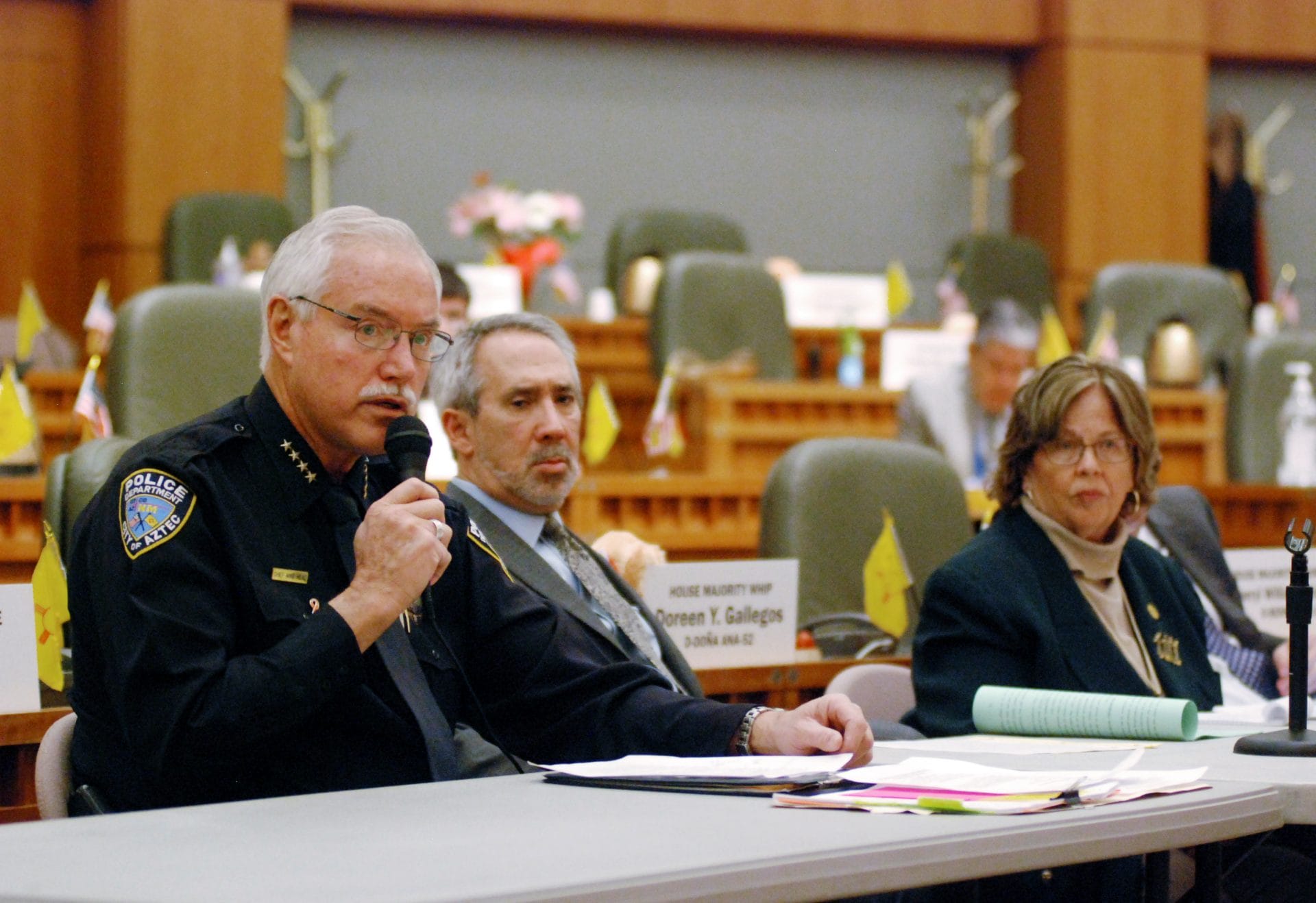
Gun Laws Are Constitutional and Save Lives. Law Enforcement Officials Must Enforce Them.
In New Mexico and elsewhere, a few elected sheriffs are turning their backs on gun safety legislation supported by lawmakers, career law enforcement professionals, and the public. It’s wrong and puts communities at risk.
Having served 25 years as an ATF special agent, I’m proud of the cases I worked on with state and local law enforcement to put violent criminals behind bars. Often this work was frustrating, as our investigations targeted armed offenders who had already used a gun to commit a serious crime. In these instances it felt as if ATF stood for ‘After the Fact.’
A law enforcement officer’s worst nightmare is being powerless to stop someone that your gut tells you is about to cause harm. That’s where extreme risk protection order (ERPO) laws come in. They save lives by empowering law enforcement, family members, or others to temporarily disarm a person in crisis. Don’t just take my word for it—this is a law that works.
Extreme risk laws save lives
Extreme risk laws in Connecticut and Indiana have helped saves lives from gun suicide, which makes up two-thirds of American gun deaths. ERPOs have also been used to disarm would-be mass shooters, like a student in Vermont who kept a “journal of an active shooter.”
Extreme risk laws are in demand
ERPO bills have been introduced in over 20 states, and have been signed into law by Democrats and Republicans, from Vermont to Florida. Support from Colorado Gun Owners for Safety, a coalition of gun owners dedicated to finding commonsense solutions to the gun violence epidemic, helped advance an ERPO proposal through the Colorado state house.
New Mexico is ready and willing to join the list of states that are taking action to enact this lifesaving policy. In 2018, voters across the state elected a governor and a legislature that committed to taking action to improve the state’s weak laws. How bad are these laws? Take a look for yourself. New Mexico received an F on Giffords Law Center’s Annual Gun Law Scorecard , and has the 10th highest gun death rate in the nation.

An extreme risk law would help families in New Mexico get support for loved ones in crisis. It would give cops the ability to prevent a firearm from being used to cause tragedy. The proposal is supported by folks across the state, including local career law enforcement officers.
A few individuals trying to stir up trouble
Just as the New Mexico senate is moving forward with this lifesaving legislation, a few sheriffs are lodging a protest. They stated that if gun safety laws like the extreme risk protection order passed, they would direct law enforcement not to enforce them. It’s a method being tried in places like Colorado and Washington. It’s also dangerous and misguided.
Misguided view of our system
What these sheriffs are forgetting is everyone has a role to play in the criminal justice system. Legislators pass laws. Law enforcement enforces those laws. Attorneys prosecute or defend someone charged with violations of the law. Juries determine guilt and judges render sentences. Courts also determine the constitutionality of laws. This system falls apart if law enforcers try to become unelected lawmakers.
I know all too well that law enforcement is a tough profession. These men and women risk their lives to keep their communities safe. They should speak up when their jobs are impacted and share how we can increase public safety and reduce crime. But a law passed must be a law enforced. Especially when we are talking about an extreme risk law that ensures that people who may be a danger to themselves or others don’t have access to firearms. Standing in opposition to enforcing this law is not simply a political statement—it sets a dangerous precedent that puts all of our communities at risk.
- Take Action: If you are a New Mexico resident, tell your state senators you support an extreme risk law. Call now: 844-311-3882
- Learn More: Read our blog “Extreme Risk Laws Are Saving Lives” about the early success of Maryland’s new ERPO law.